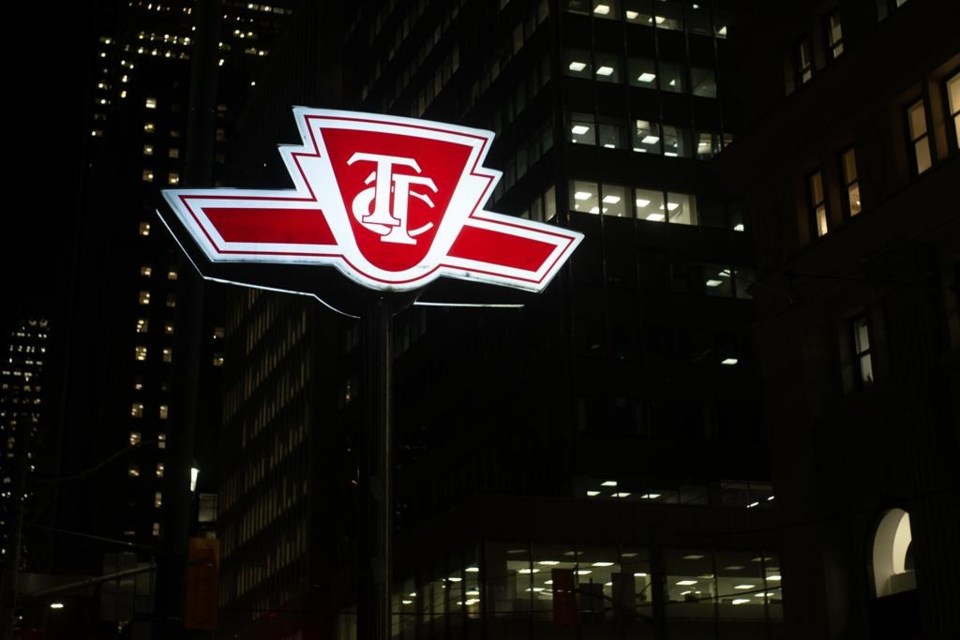TORONTO — A day after Toronto police said they were ending extra patrols on city transit, some residents said they were unsure how much of an effect the measure had on public safety.
Police announced Monday they were ending the boost in officers' presence on the Toronto Transit Commission that was introduced in late January after several high-profile cases of violence.
Those shifts had been filled by more than 80 officers working overtime shifts on a given day. Police said they would return to deploying on-duty officers on the TTC for regular, proactive patrols.
City manager Paul Johnson had said at a February budget meeting that police would not be able to afford the overtime patrols — which cost about $1.5 million per month — past the end of winter unless additional funding was considered.
Daily transit user Chris Zafirati said Tuesday that he thought the extra police patrols had been a "nice gesture" but he hadn't seen a significant expansion of visible police presence in the transit system.
"It was not profound or overwhelming," he said of the overtime patrols.
Zafirati said he would like to see increased service and the addition of more special transit constables on the TTC as ways to increase safety.
Toronto police chief Myron Demkiw has said the overtime shifts on the TTC could resume in the future "if deemed necessary." Police also noted the TTC added 50 temporary security guards as well as community safety ambassadors and outreach workers to the system in the last month.
Police said the increased police presence since late January had resulted in 314 arrests and officers giving more than 220 referrals to people in need of social supports like shelter, food and mental health services.
Monica Mason, a commuter and volunteer co-ordinator with transit advocacy group TTCriders, said it remains unclear what those arrests were for and what specific services people in need of social supports were referred to.
"There's a lot of questions," she said.
Since the start of the police enhancement in late January, TTCriders had repeatedly called for police, the TTC and the City of Toronto to provide data and evidence-based reasoning supporting the measure.
"The decision to deploy the overtime police officers seemed to be more about optics," said Mason. "It's been such a short period of time ... it's just too soon to tell, I think, the efficacy of that."
The TTC's own data indicates customer offences went down for the month of January compared to the previous month — from 145 in December to 116 incidents. Those figures include occurrences ranging from mischief to assault, with no way to distinguish their severity.
Numbers for February and March are not publicly available yet. The TTC has said it shared customer offences data for January as soon as it was available.
The TTC and Toronto police have said the boost in police patrols was a response to public concerns, and said the extra police presence on transit generated positive feedback from commuters.
"Doing nothing was not an option," TTC spokesman Stuart Green has said.
On Tuesday, the transit agency introduced a new text line for riders to report immediate safety or security concerns.
That came a day after the National Council of Canadian Muslims called on Toronto police to investigate an alleged hate-motivated case on the TTC last week.
The organization alleged a woman wearing a hijab was threatened by a man with a large knife, who was asking her questions about Muslims and Islam. Police said they are investigating.
This report by The Canadian Press was first published March 14, 2023.
Tyler Griffin, The Canadian Press

